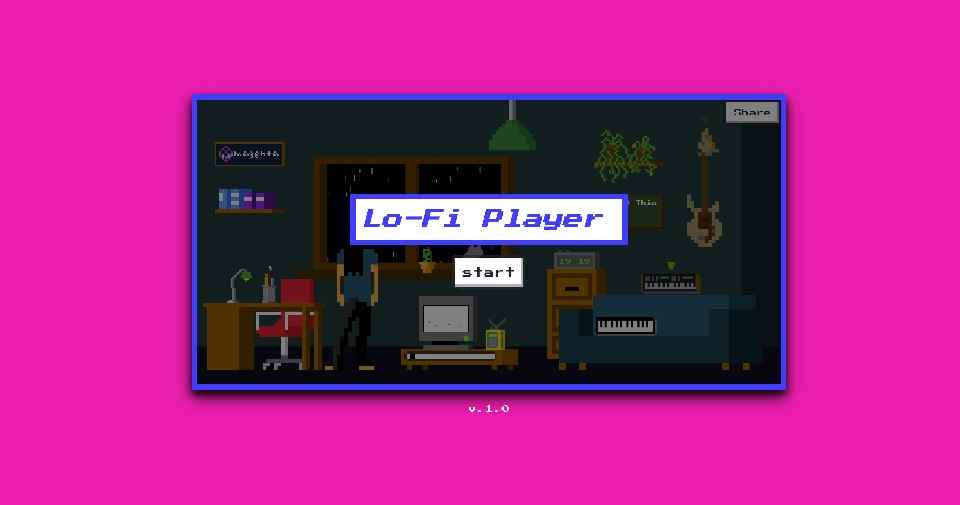Tech Nuggets with Technology: This Blog provides you the content regarding the latest technology which includes gadjets,softwares,laptops,mobiles etc
Sunday, September 6, 2020
RRB NTPC Exam Date 2020 – CBT Exam Date Announced
Chief CEO Carolyn Childers, Reboot.io CEO Jerry Colona, Ureeka co-founder Melissa Bradley are coming to Disrupt 2020
Becoming a successful leader isn’t a one-size-fits-all formula. Each startup — depending on the industry and internal culture — has its own needs.
The hard part is figuring out what leadership style best suits the personality of the CEO or founder as well as the needs and culture of their startup and employees who work there.
This year at TechCrunch’s virtual Disrupt 2020 on September 14-18, we’ll talk to the people who with the expertise and insight to help startup founders and other C-suite level executives — as well as those who someday hope to be in that spot — find the right leadership style for their business. We’re excited to announced that joining us on the Extra Crunch stage to discuss leadership styles is Carolyn Childers, co-founder and CEO of women leadership network Chief, Melissa Bradley co-founder of SMB networking platform Ureeka and Jerry Colonna, co-founder and CEO of executive coaching firm Reboot.io.
The three speakers will dig into what makes a successful leader and how to find the right management style as well as tackle other challenges that founders, CEOs and other executives face while building a company.
Bradley’s company Ureeka gives small business access to the expertise needed to grow their business. She is also founder and managing partner of 1863 Ventures, a business development program, and serves as advisor to the New Voices Foundation and New Voices Fund, as well as the Halcyon Fund. Bradley is the former Co-Chair, National Advisory Council for Innovation and Entrepreneurship and was recently named one of The Most Entrepreneurial Women Investors in 2018.
Chief, which Childers and partner Lindsay Kaplan launched in January 2019, is a private network to drive more women into positions of power and keep them there. The organization is designed for senior women leaders. Prior to founding Chief, Childers was senior vice president of operations at Handy, led the launch of the site Soap.com (Quidsi) and acted as its GM through its acquisition by Amazon. Childers’ work landed her on Inc.’s 2019 Female Founders 100 List.
Colonna’s company Reboot.io specializes in executive coaching and leadership development. Colonna, who has experience as an executive, venture capitalist, journalist and board member, is also the author of ‘REBOOT: Leadership and the Art of Growing Up.’
You may have heard that we’re taking Disrupt virtual this year, a move that lets us make the event accessible to more people than ever before while keeping everyone safe. Disrupt 2020 is scheduled to run from September 14 through September 19. Buy the Disrupt Digital Pro Pass or a Digital Startup Alley Exhibitor Package today and get access to all the interviews on our main Disrupt stage, workshops over on the Extra Crunch Stage where you can get actionable tips as well as CrunchMatch, our free, AI-powered networking platform. As soon as you register for Disrupt, you will have access to CrunchMatch and can start connecting with people now. Use the tool to schedule one-on-one video calls with potential customers and investors or to recruit and interview prospective employees.
We’ll see you there!
How Ars Technica’s tech-savvy staffers conduct happy hours in locked-down 2020

Enlarge / Artist's approximation of Security Editor Dan Goodin's Zoom calls with other infosec pros. (credit: Getty Images / Aurich Lawson)
As the United States settles into Labor Day weekend, we hope you're finding ways to celebrate—or, more crucially, to carve out something that resembles a "vacation" when travel and holiday options have become more limited. With that in mind, I polled my Ars colleagues with a vacation-minded question: How do you put the "happy" into "happy hour" in a socially distanced universe?
Unsurprisingly, many of the answers hinge on technology, though not all of them. If you've been struggling to socialize or break out of a 2020 rut, we hope our suggestions inspire you, though we'd also love to see your own suggestions in the comments section below.
Life updates between bets
In the before time, I was part of a semi-weekly poker night with friends from graduate school. Once the pandemic hit, we moved poker night online. We used Zoom for video chat, but we actually had a tough time finding good online poker software.
Interview with Reed Hastings, on the future of Hollywood, the US election and social media, his new book about Netflix's aggressive company culture, and more (Maureen Dowd/New York Times)
Maureen Dowd / New York Times:
Interview with Reed Hastings, on the future of Hollywood, the US election and social media, his new book about Netflix's aggressive company culture, and more — Netflix started with sending DVDs — remember them? — through the mail, but now the streaming pioneer sits atop a Hollywood it has thoroughly upended.
Bihar Police 2020 – SI, Sergeant & Asst Superintendent Jail Reschedule Mains Exam Date Announced
Bihar Police SI Exam Date 2020 – Reschedule Mains Exam Date Announced
Augmented reality could be the geology classroom’s killer app

Enlarge / Fancy a tabletop Meteor Crater, anyone? (credit: Scott K. Johnson)
One of the most important challenges in teaching geology is bringing the outside world into the classroom. During a pandemic, obviously, an inability to safely bring students into the classroom doesn’t make that any easier. Fortunately, digital tools can provide new ways to access the world beyond whichever room you find yourself in.
Geology is a very spatial science and can require a lot of 3-D visualization. Simple physical models (not to mention rocks) have long been used to aid teaching about things like faults or crystalline mineral structure. But these things can be surprisingly costly and occupy a surprising amount of storage space. This is an obvious place where technology can come in, serving up an endless variety of objects, simulations, and real-world data—if there’s an easy way for students to access it.
Augmented reality (AR) visualizations are increasingly capable of delivering on that promise. Ars talked to Martin Pratt about his work as part of a Washington University in St. Louis group that is developing apps for classes, both for specialized devices like Microsoft’s HoloLens and for the phones most students already have.
Googles Lo-Fi Player now lets you create live music on your browser
If you love music but really don’t know how to play an instrument or even program music, Google’s got you covered. The search engine giant recently released the Google Magenta Lo-Fi player that you can load up in your browser and start creating music right away. The project was created by an intern at Google and looks really retro with the 8-bit graphics and aesthetic. All you need to do to start making music is load up the player and start clicking on the various instruments you see on screen. It really is as easy as that. Objects like the cat, piano, acoustic guitar and bass will allow you to customize different tracks and melodies.

In a blog post, Google said, “We chose Lo-Fi Hip Hop because it’s a popular genre with relatively simple music structure. This limited flexibility helps ensure that the music always makes sense. We’re able to create something more like a “music generating room” than a musical instrument or composition tool.”
Google has incorporated several music machine learning models developed by the Magenta team to help users make the experience more novel and dynamic. Google has also transformed the Lo-Fi Player into an interactive YouTube stream where instead of clicking on the various objects to make music, you simply type in the commands in the Live Chat. Google has also made the source code for the player available on GitHub.

This may not be world-changing but it really allows people to mess about with sounds and loops and who knows, this could actually push people into making more music. Check out the Lo-Fi Player, here.
In other Google news, we’ve got a handy and easy-to-follow guide on how you can activate Google Chrome’s Dark Mode on Android, iOS, Windows and Mac, right here. The search engine giant has also rolled out a new Saved tab on Google Maps to help you keep track of your favourite places. And finally, here is how you can recover your deleted photos on Google Photos.
Original Content podcast: ‘Teenage Bounty Hunters’ is more interested in relationships than bounty hunting
“Teenage Bounty Hunters” has one of the most memorable — if not entirely appealing — titles of any new show on Netflix.
As we explain on the latest episode of the Original Content podcast, the series tells the story of Sterling (played Maddie Phillips) and Blair Wesley (Anjelica Bette Fellini), fraternal twins who end up working for bounty hunter/yogurt shop owner Bowser (Kadeem Hardison) in order to make some extra cash.
While the bounty hunting provides the initial hook for the show, the writers mostly use it as a comic counterpoint as they explore the culture of an affluent, evangelical corner of Atlanta, and then as Sterling and Blair’s relationships become increasingly complicated. The plotting in “Teenage Bounty Hunters” can occasionally feel a bit aimless, but in the end, we ended up feeling impressed and — despite the show’s silly name —surprisingly invested in the characters.
In addition to “Teenage Bounty Hunters,” we also discuss the news that Netflix is making a series based on Cixin Liu’s “Three-Body Problem” novels.
You can listen to our review in the player below, subscribe using Apple Podcasts or find us in your podcast player of choice. If you like the show, please let us know by leaving a review on Apple. You can also follow us on Twitter or send us feedback directly. (Or suggest shows and movies for us to review!)
If you’d like to skip ahead, here’s how the episode breaks down:
0:00 Intro
0:39 “Three Body Problem” discussion
12:18 “Teenage Bounty Hunters” spoiler-free review
33:55 “Teenage Bounty Hunters” spoiler discussion
Twitch says it is shutting down Twitch Sings, a live streaming karaoke game it had co-developed with Rock Band studio Harmonix, on January 1, 2021 (Andy Chalk/PC Gamer)
Andy Chalk / PC Gamer:
Twitch says it is shutting down Twitch Sings, a live streaming karaoke game it had co-developed with Rock Band studio Harmonix, on January 1, 2021 — Twitch said it's being shuttered to ‘invest in broader tools and services’ for its music community. — Twitch Sings has sung its last …
Big tech companies want to help get you back in the office

Enlarge / Office staff respecting social distancing during a meeting. Group of business men and women having a meeting in office during corona virus pandemic. (credit: Getty Images)
Many things about Matt Bruinooge’s senior year at Brown are different from his previous college life. One is that he logs on to a website from tech giant Alphabet twice a week to schedule nasal swabs.
Brown is one of the first customers of a pandemic safety service from Alphabet subsidiary Verily Life Sciences called Healthy at Work, or Healthy at School at colleges. It offers a website and software for surveying workers or students for symptoms, scheduling coronavirus tests, and managing the results.
The site Bruinooge uses to schedule his tests has similar styling to Google’s office suite. When a test comes back negative, he sees a graphic of something like a COVID-era hall pass, with a big check mark in soothing green. “The testing process is streamlined,” Bruinooge says—although he wonders where his data may end up.
Why Facebook’s political-ad ban is taking on the wrong problem
When Mark Zuckerberg announced that Facebook would stop accepting political advertising in the week before the US presidential election, he was responding to widespread fear that social media has outsize power to change the balance of an election.
Political campaigns have long believed that direct voter contact and personalized messaging are effective tools to convince people to vote for a particular candidate. But in 2016, it seemed that social media was amplifying this threat, and that invasive data-gathering and sophisticated political targeting had suddenly created a recipe for democratic disaster.
The idea of algorithmic manipulation schemes brainwashing large swaths of the US electorate online is a nice way to explain the polarized nature of American public opinion. But experts say it’s actually pretty unlikely that targeted political advertising has had much influence on voter behavior at all.
“Very quickly you get absolutely nowhere”
Much of the reasoning behind the ban relies on the idea that social media can convince undecided voters. This has been the narrative since the 2016 election, when Cambridge Analytica claimed it used “psychological warfare” to manipulate vulnerable undecided voters on Facebook into believing fake news and convincing them to vote for Donald Trump. The Guardian reported extensively on the Cambridge Analytica’s idea “to bring big data and social media to an established military methodology—‘information operations’—then turn it on the US electorate.”
But in reality, campaigns still can’t persuade undecided voters much better than they could 10 years ago.
Some suggest that associating certain online attributes with voter profiles allows campaigns to group target voters into smaller, more specific groups that care about particular things, which might offer an avenue to getting them to vote a certain way. For example, you could assume all independent first-time Minnesota voters who have liked the Bass Pro Shop are likely to care about gun rights.
But Eitan Hersh, an associate professor at Tufts University, says these assumptions get layered with errors. A campaign might assume that “the person who watches Jersey Shore has X kind of personality traits,” he says, but “those things aren’t going to be perfectly correct.”
“Then I’m going to try to make an ad that is focused on that personality trait. Go to any ad seller: how easy is that to make an ad just right for that personality trait? And then it has to come at exactly the right moment on your timeline where you’re receptive to it. When you add all of these layers of error atop each other, very quickly, you get absolutely nowhere. It’s just all noise.”
Even if these errors didn’t exist, it’s nearly impossible to measure whether ads were effective in changing somebody’s voting behavior. Voting, after all, is secret.
That doesn’t mean advertising can’t be effective, however. In fact, the online targeted political advertising system has advanced in two meaningful ways: first, it has allowed campaigns to more accurately sort decided and undecided voters using data, and second, messaging has gotten more effective as a result of sophisticated A/B testing.
The bigger problem
But the true strength of online political advertising has been in sowing discord. Social-media networks function by running powerful content recommendation algorithms that are known to put people in echo chambers of narrow information and have at times been gamed by powerful actors. Instead of getting voters to switch their position, political messages delivered this way are actually much more effective at fragmenting public opinion. They don’t persuade voters to change their behavior as much as they reinforce the beliefs of already-decided voters, often pushing them into a more extreme position than before. That means the ads being banned—the ones from the campaigns—are not what is changing democracy; it’s the recommendation algorithms themselves that increase the polarization and decrease the civility of the electorate.
Sam Woolley, the project director for propaganda research at the Center for Media Engagement at the University of Texas, says that while he’s “glad that Facebook is making moves to get rid of political ads,” he wonders “to what extent the social-media firms are going to continue to take small steps when they really need to be addressing a problem that is ecosystem-wide.”
“Political ads are just the tip of the iceberg,” he says. “Social media has horrendously exacerbated polarization and splintering because it has allowed people to become more siloed and less civil because they’re not engaging as much in face-to-face communications, because they’re behind a wall of anonymity and because they don’t really see consequences for the things they do.” These algorithms may seem mathematical and objective, but Woolley says the system is “incredibly subjective,” with many human decisions behind how and why particular content gets recommended.
So Facebook’s ban ahead of November 3 won’t do much to change voter behavior. Indeed, since Facebook’s algorithms give more weight to posts with some time and circulation behind them, Zuckerberg’s ban might not have any significant impact at all.
Tackling the rest of the iceberg requires a total reframing of what social-media networks actually are.
“There’s no denying that the fundamental alteration of our media system from broadcast to social media has irreparably changed the way we share information, and also the ways in which we form opinions, and also the ways in which we get along—or don’t get along,” he says.
What does this mean for democracy?
This is not an entirely new problem. The American political system has used targeted political advertising for decades, long before the internet. In the 1950s, before cookies tracked your online behavior to create detailed logs, campaigns would send canvassers to specific addresses that were home to undecided voters. In the 1960s, before online advertisers started serving custom-made ads that convinced you your iPhone was listening to your conversations, data scientists were engineering messages aimed at small groups of persuadable voters.
Social media’s role has not been to dramatically change the direction of this system, but to intensify the polarization and fragmentation it causes. On top of this, larger and more extreme groups also become vectors of misinformation and propaganda, which accelerates and worsens the problem. These challenges go far beyond Facebook’s ban—they challenge the whole online economic and information ecosystem.
“Social-media networks, in particular, have challenged what we think of as democracy,” says Woolley. “They’ve undermined our democratic communication system in a big way, contrary to what we thought they were going to do. That being said, I do believe that democracy is a work in progress.”
https://ift.tt/2ETFuQj https://ift.tt/eA8V8JPicnicHealth, which that lets patients access and manage their health records online and share their medical history with researchers, raises $25M Series B (Jonathan Shieber/TechCrunch)
Jonathan Shieber / TechCrunch:
PicnicHealth, which that lets patients access and manage their health records online and share their medical history with researchers, raises $25M Series B — PicnicHealth, the startup that's looking to give patients a way to manage their care in one place and pharmaceutical companies access …
Netlix, Prime Video, Disney+Hotstar and others sign self-regulatory code to avoid censorship by Indian govt
Get ready for uncensored content on Netflix, Prime Video and Disney+Hotstar to change soon as a self-regulation code has been drafted and signed by 15 of India’s largest streaming companies. This code has not been imposed by the Indian government but rather is more self-regulation by these companies as they would rather not face the wrath of the government and preemptively ‘self-regulate’ content. Companies such as Netflix, Amazon Prime Video, Disney Plus Hotstar, Zee5, Viacom18’s Voot, ALTBalaji, Eros Now, MX Player, Discovery Plus, Jio Cinema, HoiChoi, Arre, Flickstree, Hungama and Shemaroo have all signed the ‘Universal Self-Regulation Code’which was drafted by the Internet and Mobile Association of India. You can read the entire thing here.

First reported by Variety, the code was introduced in 2018. This code essentially came about as the Indian government did not want to impose restrictions on streaming companies and would rather these companies do it themselves. The Universal Self-Regulation Code includes frameworks for age classification, content descriptions as well as the introduction of a ‘grievance reporting mechanism’. This system essentially allows viewers to report non-compliant content. Each company will also set up a consumer complaints department along with an advisory panel to deal with the various grievances and issues that viewers might have with the content on their platforms. According to Variety, “the advisory panel will have at least three members including an independent external advisor and two senior executives from the streamer.”. The code is effective immediately on all the above mentioned streaming sites. Who knows how this will affect content on streaming platforms in the coming months but if history is anything to go by, we’ll could soon be getting censored content on streaming services, just like we are on television.
In a statement to the media, a representative from the Internet and Mobile Association of India said, “The goal of this industry-wide effort is to empower consumers with information and tools to assist them in making an informed choice with regard to viewing decisions for them and their families, while at the same time, nurturing creativity and providing creators the freedom to tell the finest stories.”
In other news, Netflix has cancelled its cyberpunk show Altered Carbon, but we’ve got a bunch of shows to help you fill that void. Check it out here. You can also watch select Netflix originals for free, without a subscription, and you can find out how to do that, right here. And finally, Netflix is also testing a shuffle button to help you decide what to watch next. You can read more about that here.
Saturday, September 5, 2020
A look at the role of WeChat in China and abroad, its differences with TikTok, and how its features are inextricably woven with surveillance and censorship (Paul Mozur/New York Times)
Paul Mozur / New York Times:
A look at the role of WeChat in China and abroad, its differences with TikTok, and how its features are inextricably woven with surveillance and censorship — A vital connection for the Chinese diaspora, the app has also become a global conduit of Chinese state propaganda, surveillance and intimidation.
Analysis: mentions of deepfakes or AI-made content in X's Community Notes were more correlated with new image generation model releases than elections in 2024 (Clara Murray/Financial Times)
Clara Murray / Financial Times : Analysis: mentions of deepfakes or AI-made content in X's Community Notes were more correlated with ...
-
Jake Offenhartz / Gothamist : Since October, the NYPD has deployed a quadruped robot called Spot to a handful of crime scenes and hostage...
-
Answers to common questions about PCMag.com http://bit.ly/2SyrjWu https://ift.tt/eA8V8J